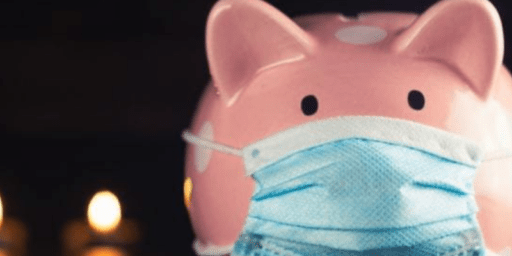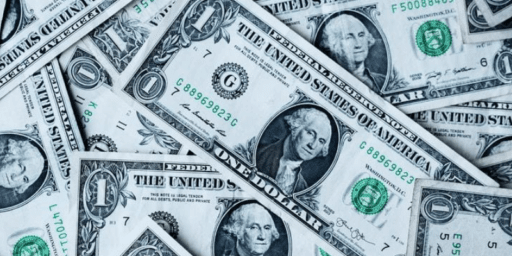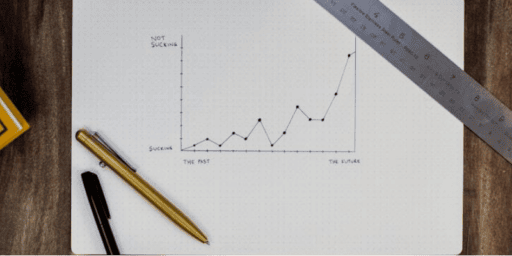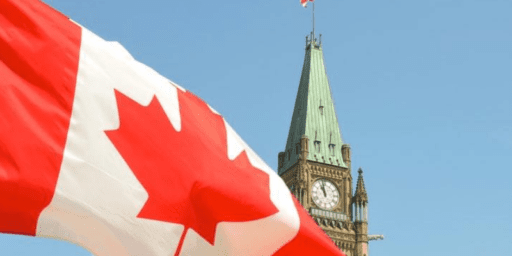Net Worth Update January 2016 – Smiling Saver (Digging out of Debt) (+39.46%)
Welcome to the Million Dollar Journey January 2016 Net Worth Update – Team MDJ edition. A select group of readers were selected to be part of Team MDJ which was conceived after the million dollar net worth milestone was achieved in June 2014. SmilingSaver was selected as a team member and will post net worth updates on a regular basis. Here is more about him.
- Name: SmilingSaver
- Age: 30
- Net Worth: negative $13,757 (vs. -$22,725)
- Day Job: Engineer
- Family Income: $74,000
- Goals: Start 2016 Debt free. Be debt free by 31.
- Notes: Married in May 2015. Wife graduated from school with second degree (Oil and Gas Engineering) in May 2015. Immigrated to Canada 13 years ago (full story here).
Hey Everyone, Happy new year!
Well the debt free goal for 2015 was officially not achieved. We are still in debt with a balance of $14,000. That makes the beginning of this year a bit frustrating. I initially revised my goal for being debt free from August 2016 to January 2016 because my wife had lined up position after her graduation. With her start date of June of 2015, I was sure we would climb out of debt by 2016.
Unfortunately this did not happen. The job my wife had lined up did not work out, and even with extensive job searching, we didn’t have any luck for the rest of 2015. She has picked up part time shifts of different types of work and applying to every positions she can find, but no solid engineering leads so far. Alberta is not doing too good for a recent oil and gas graduates. So with that, I sadly have to revise the goal back to August 2016.
I am not sure if I’m just making excuses, or if it’s just plain bad luck. I would like to hear your opinion. I kind of stopped looking into future investment opportunities. It is hard to look into the future, when you already failing your current goals. What would the readers think my next goals should be? I would really like some suggestions.
Update on the student loan:
I have taken into the account the worries that people highlighted on this blog. As such, I opened up an low interest line of credit with a limit of $12,000. I will be transferring debt to the line of credit the moment the student loan debt hits 12k. I will not be dealing with the credit card low interest money transfer.
On to the net worth numbers:
Assets: $2,100 (-22.22%)
- Cash: $2,100 (-22.22%)
- Registered/Retirement Investment Accounts (RRSP): $0,000 (+0.00%)
- Tax Free Savings Accounts (TFSA) : $0 (+0.00%)
Liabilities: $15,857.8 (-37.63%)
- Student Loan (Wife) : $15,857.8 (-37.63%)
Total Net Worth: ~LOSS: $13,757 (+39.46%)
Some quick notes and explanations to common questions:
The Cash
We have $2,000 as an emergency fund sitting in Tangerine checking account.
Savings
$0 in TFSA and RRSP, need to pay of the Student Loan first.
Student Loan
$15,857.8 is currently with Canada student loans. Due to high interest, it will be transferred to a line of credit the moment the balance hits $12,000.
Check out more Team MDJ updates here.










It is interesting to see this amount of variety in the finances of Team MDJ.
Just curious here, do you have a specific reason to be holding your emergency fund in the Tangerine Chequing? If you were to even divert that to their savings account you would get a much better interest rate.
Richard
In the middle of January, my spouse lost his job. For so many years he used to be the main income earner. My 3 part times, will make together $24,000 roughly, before tax. We have a small RRSP and TFSA. Both are not maximized.
When the sudden job loss came, we took our money out of TFSA. I started my TFSA in December 2015 only.
While he is looking for job, I am taking every possible work comes to me.
So, the plan is not to accumulate any more debt, other than the current mortgage of our two bedroom condominium. We are both over 45 years old and immigrated to Canada in 2001.
So I understand your financial situation and worries.
Actually, one of the comments above says about putting money in to RRSP and using the tax refund to reducing debt is a strategy. We tried to use it to mortgage lump sum payments.
I think, you can park your emergency fund in a high interest TFSA. The interest will not be taxed.
Smiling Saver,
Don’t for get to smile :)
As me per above comments, do not beat yourself too much. At least you have a plan that you are working towards too.
For now, you just have to sacrifice just a little bit more to be debt free. You are almost there. Plus, given your wife is now finished, your income is just going to increase from here.
I find your story very inspiring. I am also an immigrant, had student loans for my engineering degree here in Toronto. Unfortunately, I was not smart about my money while in university and had accumulated consumer debts through credit cards and bought a new car after my graduation (worst financial decision so far). For the past two years, i have been trying to reduce as much debt as possible. Back in January 2014, i was $61,000.00 in debt and as off today, I am sitting at $31,000.
I am 27 yrs old and with a girlfriend for 2 yrs now. Unfortunately, at this age, marriage is not something uncommon with family and friends to talk about. However, as much as i want to get married, i do not have the cash to do so with my current debt load. Fortunately, my girlfriend understands my situation.
Anyhow, hang in there buddy! You’ll be done in a few months and you can enjoy those future travel much more!
SmilingSaver,
Thanks for sharing your story. It reminded me of ours. We just finished our student loan repayment last year, and the angst you write about is very real to me. However, you shouldn’t beat yourself up on circumstances beyond your control. You guys just slashed your debt load by over 75% in a little over a year while living in ground zero of an economic downturn. That, to me, is plenty enough to be encouraged to stick to your original plan.
Consider Tim’s comment on the repayment assitance program. It was a great help to the missus and I right out of school, when employment prospects weren’t good and the jobs we did find weren’t stable. We did eventually transfer the last $10k to our line of credit, but only after we were absolutely sure that should one or both of us lose our jobs we would still be able to meet our goal living on EI assistance.
Don’t get hung up on investment opportunities, you’re in debt repayment mode right now and once the debt is gone there’ll plenty of new bargains to pick up. If you must scratch the itch, why not open an Investopedia simulator account to practice strategies.
I agree with the others, don’t be so down on yourself! You are slashing that debt and it seems like you will be able to get out of debt this year even if your wife doesn’t find a job in her field. I really do think it is just bad luck rather than making excuses. That is probably one of the worst fields to be in in Canada right now. I also agree that trying to make alternative plans is probably worthwhile just in case energy prices take a long time to recover. One last thing. If your loans are low interest, consider the tax advantages of contributing to your RRSP (it may be financially advantageous to contribute to your RRSP and apply the return to your loans thereby accomplishing two goals at once).
The newly minted EQ Bank offers 3% interest savings accounts — no fees, either. Putting your emergency fund in there might make sense. Dollars, too.
Well done! Despite facing challenges, remind yourself that you still managed to increase your portfolio by nearly 40% since the last update.
Look on the bright side, at least you weren’t depending on your wife’s income to pay your mortgage or rent. At this point in time, there is a lot of uncertainty in your wife’s career. Unless oil recovers, your wife is going to have a really tough time finding an oil and gas job. Most of the Canadian oil industry is unprofitable if oil prices don’t recover.
You should probably have 2 sets of goals at this point. One set for the case your wife is able to find a job in her field (oil price recovers), another for the case that oil stay low for another 5 years (I don’t know how likely this is, but futures markets are pricing in this scenario) and oil/gas jobs are impossible to find. Your wife’s earning potential is leveraged to oil prices, and oil prices are out of your control.
Just came across this:
http://www.bloomberg.com/news/articles/2016-01-18/the-north-dakota-crude-oil-that-s-worth-less-than-nothing
Don’t adjust goals or timelines unless you actually achieve them early with no prospect of consequence and only readjust when it is necessary (on your initial milestone dates for adjustment/review)
What you are learning here is that things can change very quickly in both positive or negative directions. The further your goal timelines are set out the higher probability that change can occur.
Set your goals and timelines and stick with them. If you are over performing then great, sock that away and may your balance sheet look great. There’s a psychological win to doing that as well. But because you’ve adjusted the timelines you’ve set yourself up for a psychological “fail”. You still have time to meet your original timelines if things change toward the better. Stick with your original plans, there’s a reason why they came out this way when your originally planned them.
You’re report sounds like you are being extra hard on yourself for no real reason beyond your control. Imagine how you would react if your boss doubled your workload and shrunk the time you had to do it in half and didn’t change your pay…completely reasonable right?
My only concern with using the line of credit to pay the student loan off is the fact that you will loose one feature of the student loan. Repayment assistance. If all of the sudden your income situation changes to the worse there are programs to help. With a line of credit, unless you bought the insurance, the banks are not as forgiving.
Make sure you are on the variable studen loan rate which unless you have an equity line of credit the rate difference will not be that much, especially if you factor in insurance premiums.